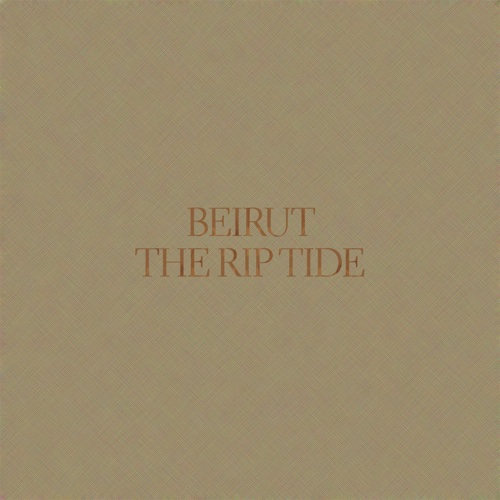Zach Condon wasn’t joking when he spoke about The Rip Tide before the album was even announced: “I write sad songs when it’s nice outside. I write warm and happy songs when I’m up to my neck in snow for three months.” And so, The Rip Tide, which was recorded in upstate New York during the harsh winter, is as “sunny” as Condon imagined, showing an artist particularly in-tune with his end product, though the warmth is somewhat subtle in its manifestation. But, how often is a writer or musician’s perception of their creation far from their audience’s reception? Not here, as Condon was wise as hell to hold on to The Rip Tide until August.
But, it is not the danceability of “Santa Fe,” which may be the best pop song Condon has yet to write, that makes The Rip Tide such a joy. Perhaps a reflection of the harsh elements surrounding the recording, The Rip Tide sneaks up on the listener, illuminating more like the candle than the campfire of the opening tune. “Goshen,” containing lines about “never finding home,” treads a tightrope between emotional and melodramatic, until the snare kicks in like a match in a dark room, rushing blood into the song and catching the listener by surprise, allowing the whine of the trumpets to sting a little less. On “Payne’s Bay,” the relief comes on a little less dramatically, but no less effectively, with the music dropping away and the trumpets pulsing with life. “Headstrong,” Condon claims to be at this moment and the whole of the album would seem to agree with him.
See, where as Beirut’s previous albums have seemed worldly, sprawling, and, sometimes, unfocused, The Rip Tide is every bit a struggle between Condon and his tendencies. At only nine songs and a little more than a half-hour, it is obvious in its reduced scale. But this new concentration suits Beirut, seeming less focused on bringing the world to his Southwestern bedroom, but, rather, writing what he knows: “Santa Fe,” “East Harlem.”
The Rip Tide, though, never bursts at the seams, and never feels too slight. Each number in the collection packs weight, and repeat listenings allow all nine to unfold their unique beauty. “Port Of Call” sees Condon using his ukelele as a driving force, allowing his safest melody to still unveil something special. The title track manages to sway on the notes of its strings like a boat in a harbor, gently pushed in and out by the tide. But, as the title suggests, the calm of the surface serves to hide the emotional weight that lies down below.
It’s these dueling elements that makes The Rip Tide Condon’s strongest album yet and points to a songwriter maturing and only beginning to unveil his potential. Nothing about the current incarnation of Beirut feels like a gimmick, but, rather, the preferred voice from a singer who needs to be heard. It is a rare album that can cause a genuine swirl of emotions, sometimes within the same moment, but in the heat of August, The Rip Tide demands to be celebrated. And maybe, come winter, it will find a second life.


